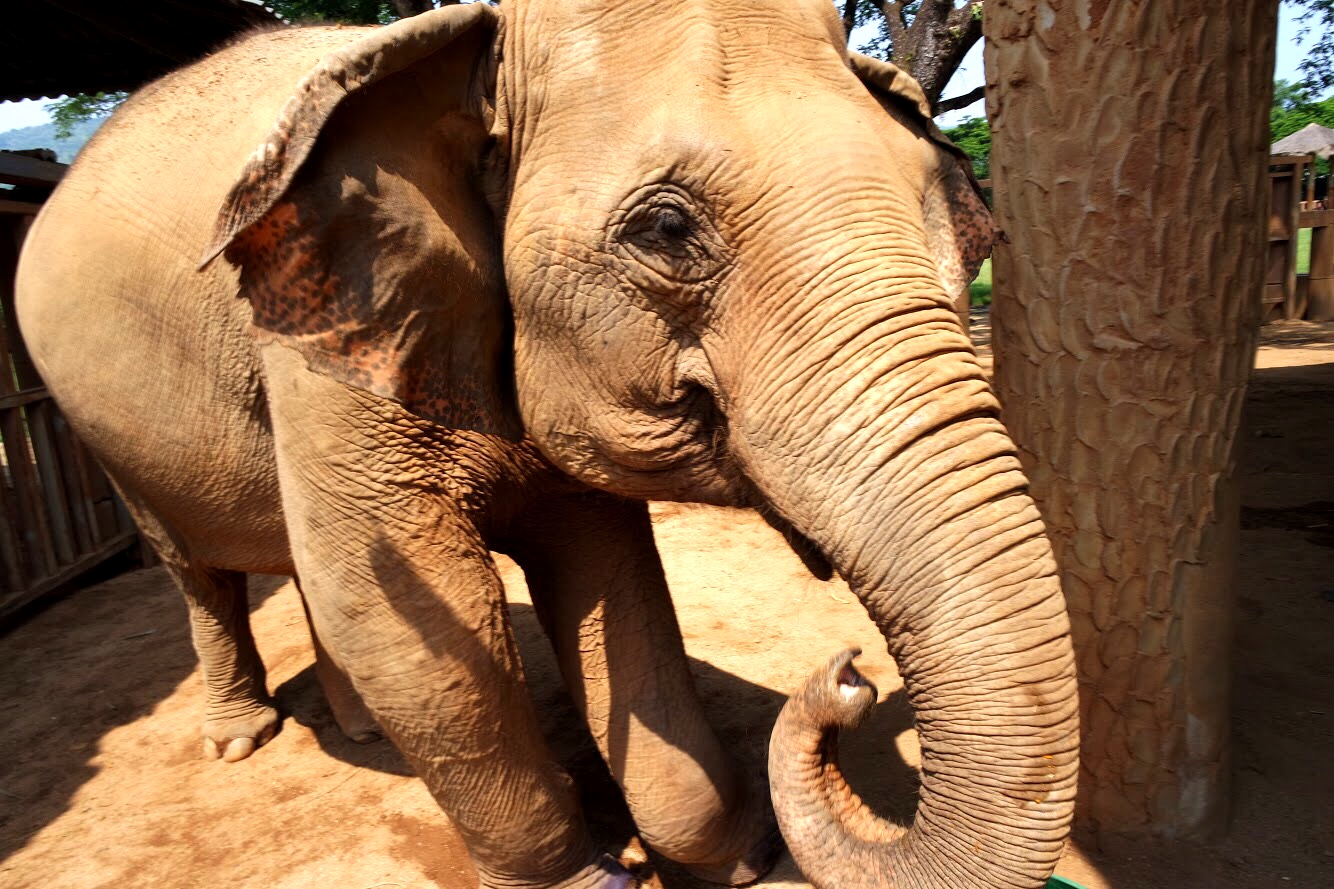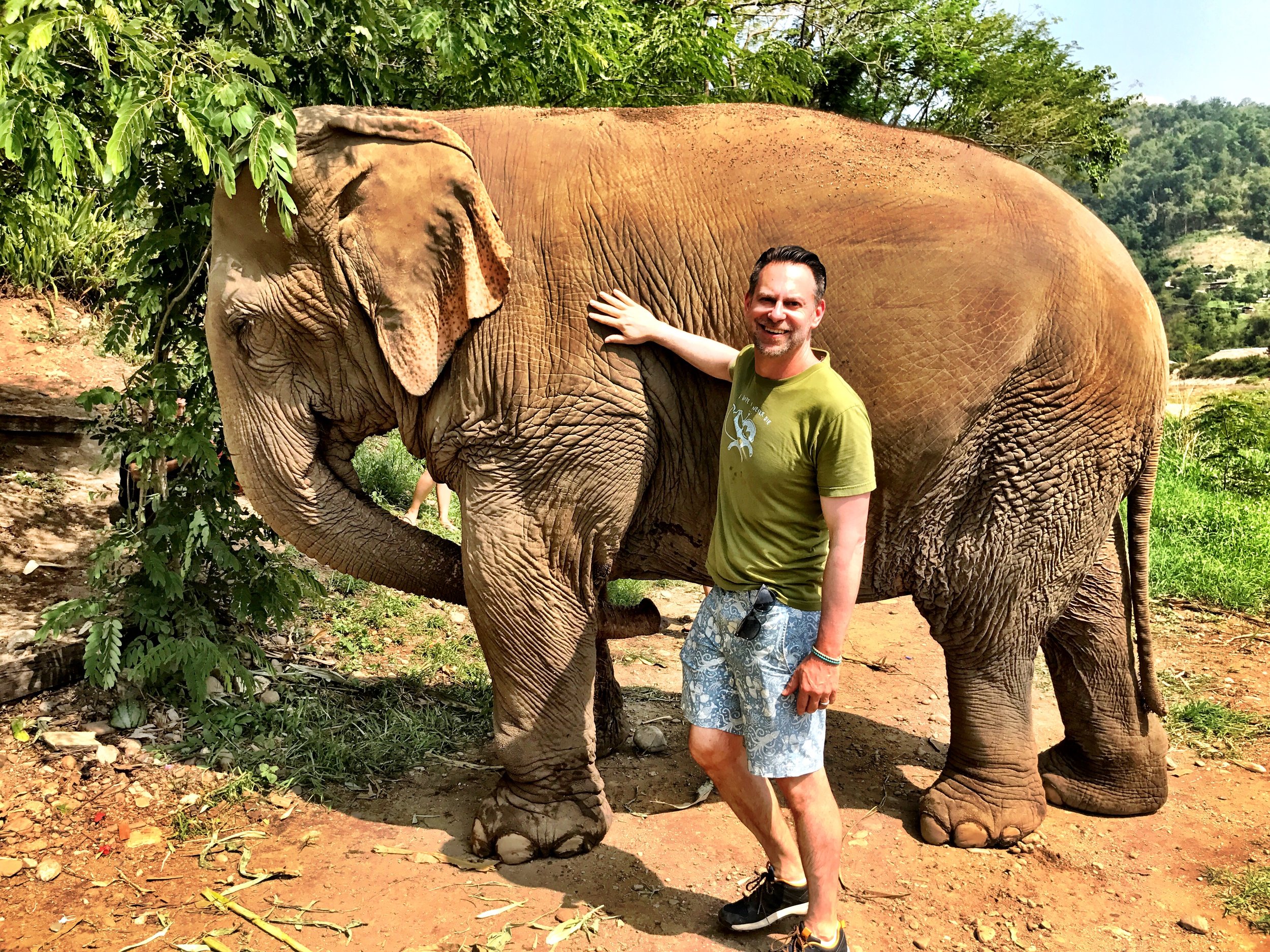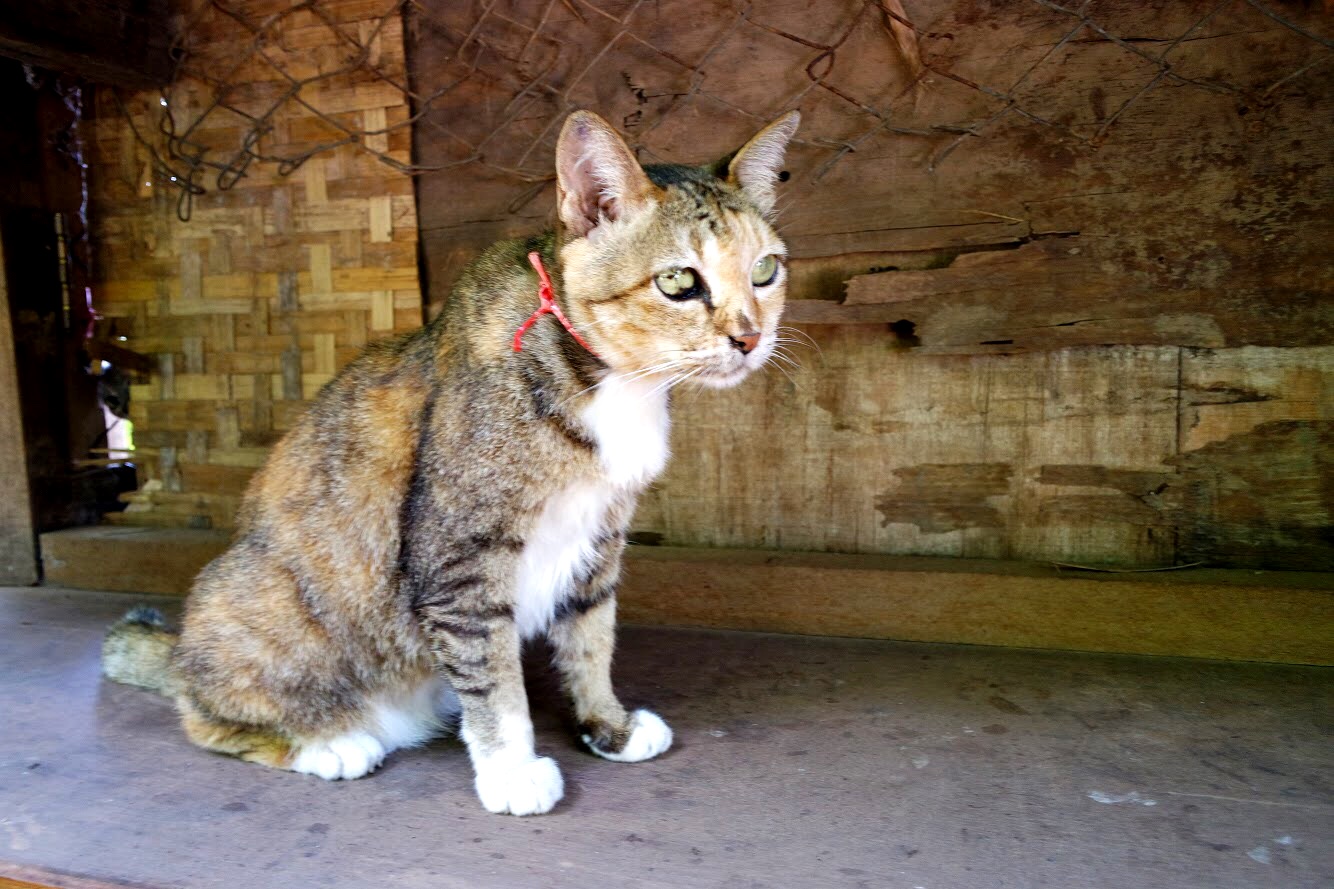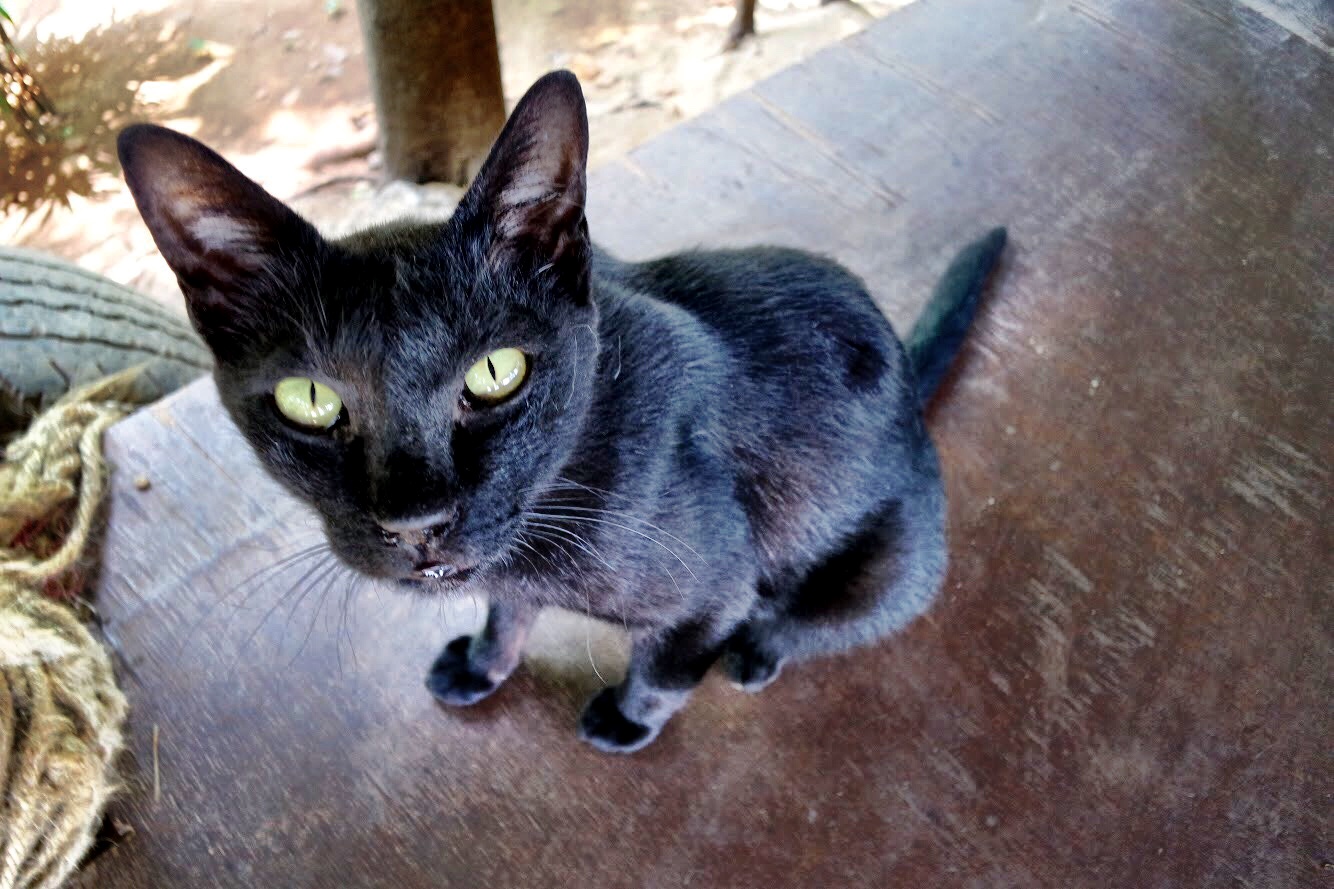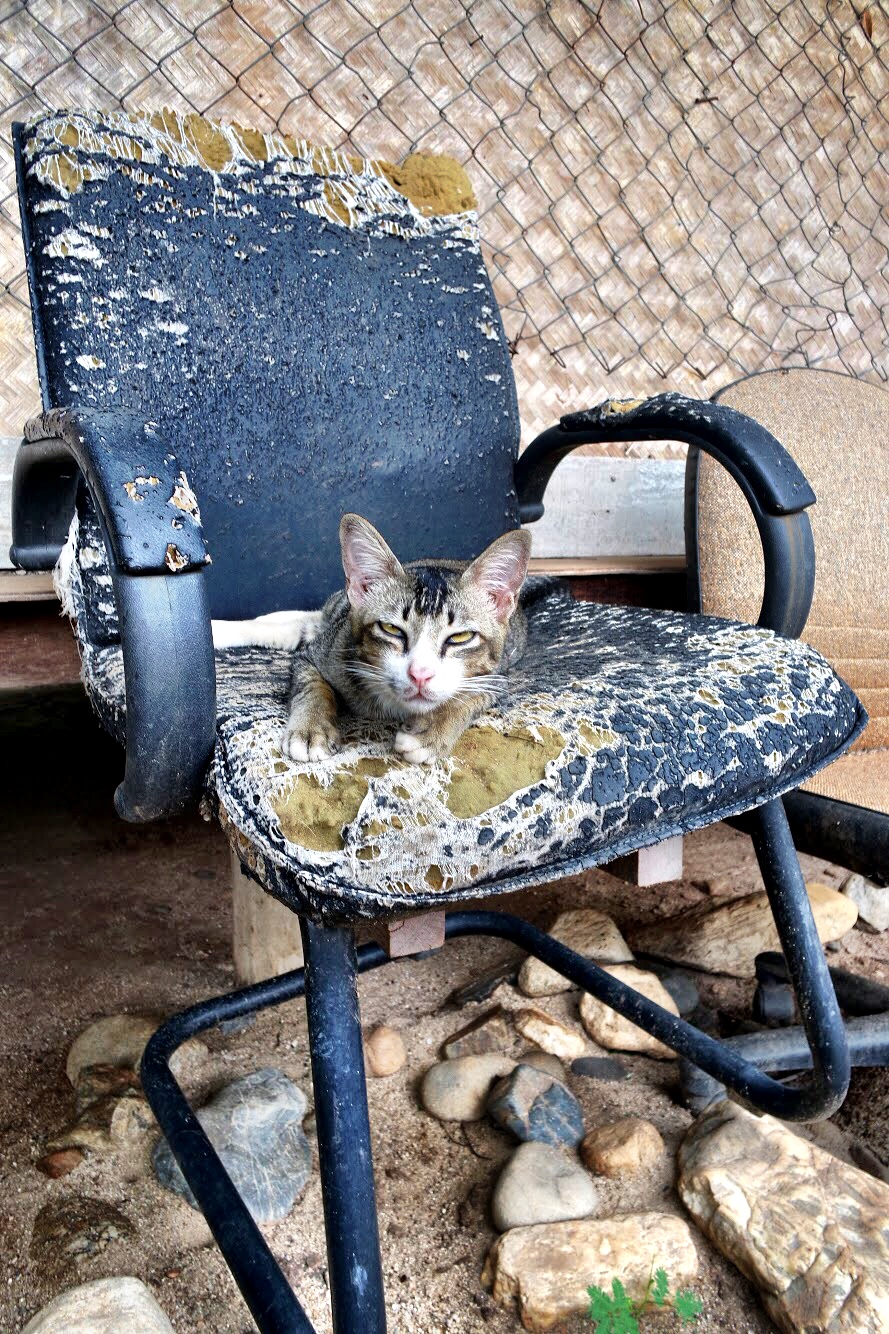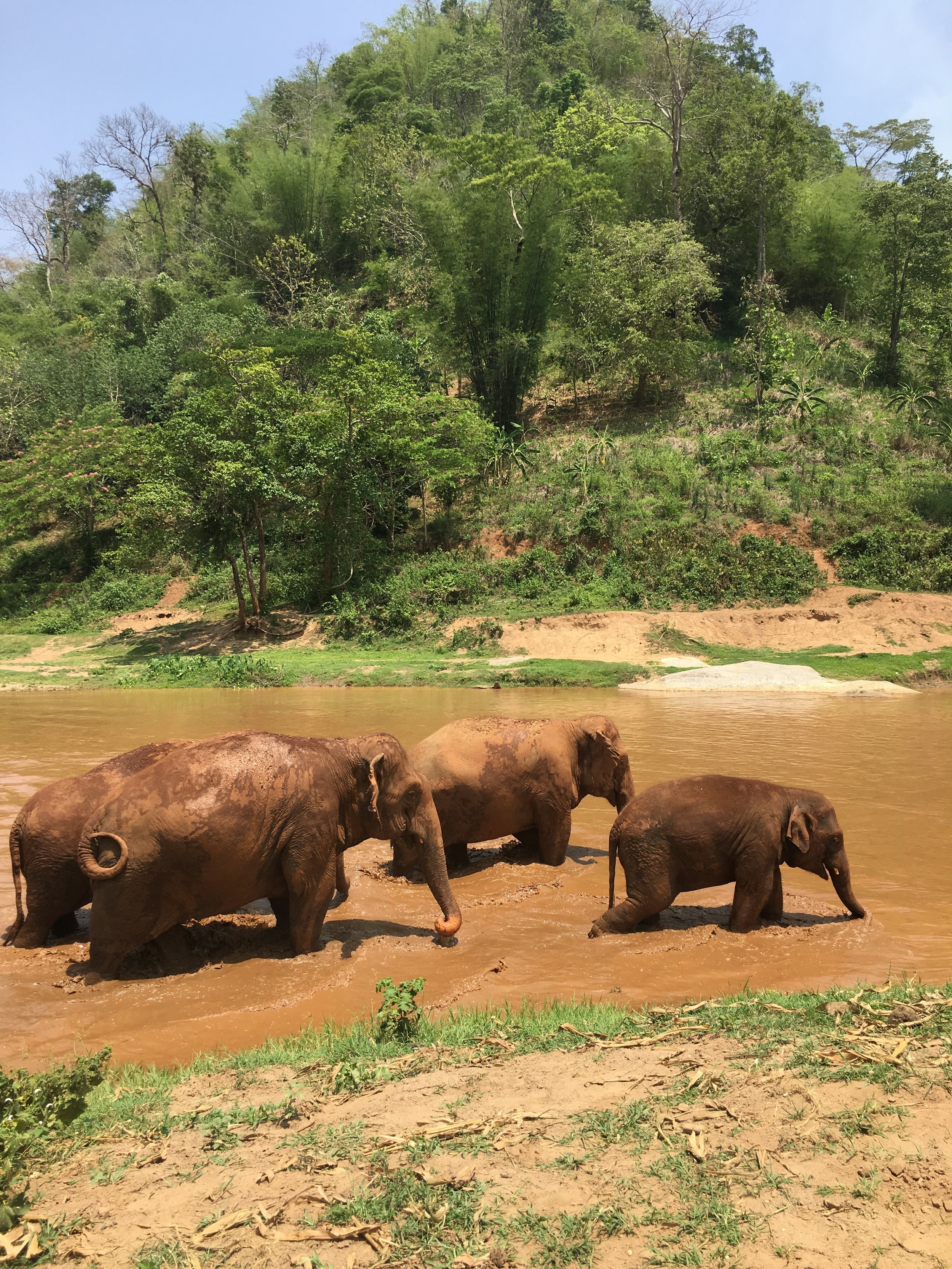Feed and bathe the residents of this elephant sanctuary outside of Chiang Mai.
Water buffalo coexist with the elephants at the park, one of the highest-rated sanctuaries in Northern Thailand
Before we did a bit of research, we didn’t know any better. We thought the idea of riding an elephant would be fun. But the more we read in preparation for our trip to Chiang Mai, the more we realized we didn’t want to be a part of perpetuating the ill treatment of elephants and that we wanted instead to visit a sanctuary, a place where elephants were rescued and not exploited.
It’s heartbreaking to think how much these elephants suffered before their idyllic life in the sanctuary
The Elephant Nature Park outside of Chiang Mai had great reviews, so we booked a half-day visit with them. A van came to pick us up at our hotel, stopping in town to gather other travelers. The ride takes over an hour, and be warned: You’ll have to sit through a horrific video detailing the barbaric practices of “training” elephants.
The sad fact is that en route to the park, while you’re learning about the cruel practices trainers use to break one of these creatures, you’ll pass tourist operations where people are riding elephants. Which means they’re guilty of the atrocities you’re watching on the small screen at the front of the van.
Spend a day at the Elephant Nature Park to feed, bathe and get to know rescued elephants
“The Elephant Nature Park’s mission is to rescue elephants who have been retired from the logging trade, have been abused by the tourism circuit or have suffered in some other way.”
Elephants live about as long as humans do
The Elephant Nature Park was founded by Lek Chailert. Her mission is to rescue elephants who have been retired from the logging trade, have been abused by the tourism circuit (trekking, street begging, circuses) or have suffered in some other way.
Little Yindee is one of seven baby elephants to have been born in the park
The park purchases elephants for about 2 to 3 million baht and offers them a 500-acre sanctuary to roam freely. There are currently over 30. A lot of them have medical problems from their ill treatment in the past, and here they receive excellent medical care and the proper diet.
Elephants at the park get fed corn, rice, watermelon and squash — but they seem to prefer bananas
Insider Tip: You’ll do a lot of walking, so we don’t recommend wearing flip-flops as a lot of the other guests did. But you also don’t want to wear shoes you can’t get wet — at the end of the tour, you have the chance to go into the river to bathe an elephant, and we had to go barefoot. The best footwear would be walking sandals that can go in the water.
Wally and Duke had a fun day at the Elephant Nature Park while visiting Chiang Mai
Please Do Feed the Animals
At the Elephant Nature Park, you get divided into smaller groups of 12 or so, and you make the rounds seeing the elephants as they go about their day. Our first stop was to feed Kham Moon. She’s 55 years old (elephants have the same life expectancy as humans!). She was involved in logging until she broke her leg and was deemed useless for those purposes. Now she’s a sweet, if spoiled, resident of the park.
There are baskets of food you’re allowed to feed the elephants. We fed her pumpkins at first, but after a while she spotted the bananas and only had eyes for them. These big beasts sure love to eat — they consume at least 10 percent of their body weight every day! Our guide, Nieo, told us that elephants eat for 20 hours a day and sleep only three to four.
Many of the elephants at the park show signs of their previously abusive lives
An elephant's trunk is its most versatile tool. It’s used for breathing, smelling, trumpeting, touching, grasping for leaves, sucking up and sometimes spraying out water. This useful bit of equipment has 40,000 muscles (compared to the human body which has just 639 muscles), Nieo explained.
You don’t really realize how wise and sweet these animals are until you get up close and personal with them
It’s really quite freaky but amazing watching elephants eat. The end of their snouts are able to grab food, moving like fingers. I’d hold out a banana, then quickly move my hand away as the snout pulsated, squealing like a little girl.
An elephant’s trunk is an amazingly useful appendage
When near an elephant, always stand where it can see you — they don’t have peripheral vision. You also shouldn’t stand directly in front or behind an elephant, Nieo told us.
It’s true that elephants are scared of mice, our guide added. “They don’t like small things — including children. They move too fast.” Keep that in mind if you’re bringing little ones along.
Our next stop was feeding Sook Jai, an 82-year-old elephant. She’s blind and has no teeth, so we had to peel bananas before giving them to her.
Another elephant fun fact: They’re natural born farmers. They only digest 40 percent of their food, so whatever they eat grows out of their poop.
The elephants cool off in the water and use their trunks to spray themselves
Bath Time
Our group moved through the hot sun over to the watering hole, watching the elephants cool off, spewing the brown water onto their backs. We learned that one of the elephants in the group had been rescued after stepping on a landmine.
A baby elephant named Yindee splashed in the water with her cohorts. She’s one of seven elephants to have been born in the park.
Duke thinks this elephant could use some good moisturizer
Wally makes a new friend
Some of the mahouts splashed one of the elephants who has bad legs and can’t lie down in the water. While we watched these giant creatures cool off, the operation across the river had people riding elephants right by guys recklessly driving off-road ATVs. Our group all disparaged them, and I suggested throwing elephant dung at them.
Our guide was informative and had a great sense of humor
By the river, we fed an elephant named Jandee. That means “Kind Heart,” Nieo told us. It’s ironic, though because this 66-year-old is a bit feisty and would fight if she was near other elephants.
She doesn’t have any teeth, either, so we fed her rice balls.
I pretended like I was going to throw one. “Snowball fight!” I joked, giving Jandee her treat.
She swung her trunk around with the rice ball before eating it. “She likes to play with her food,” I pointed out.
Jandee is the second largest elephant at the camp. She’s from a photo studio on the island of Ko Tao, where people could take wedding photos with her. But the operator didn’t have license, and she was purchased and brought to the Elephant Nature Park.
You’ll also see a lot of elephants using their trunks to toss mud and dirt onto their backs. It acts as a natural sunscreen to protect their skin and keep them cool.
The park is also a rescue center for cats (as well as dogs)
Midway through the morning, we break for lunch so we could actually feed ourselves and not just the elephants. We had heard that the buffet was delicious, and the online reviews didn’t lie. There are numerous local dishes to choose from, and many of them are vegetarian.
After we were done eating, Duke and I wandered behind the kitchen to the Cat Kingdom. In addition to rescuing elephants, the park also saves water buffalo, dogs (avoid the ones with red bandanas around their necks, as they’re not good around people) and cats. The feline contingency has its own domain, which we explored.
When you join the elephants in the river, be advised that the muddy water can stain your clothes
The final stop of the day is watering elephants. In addition to not recommending you go barefoot (one of the girls with us stepped on something and cut her foot pretty badly), you also shouldn’t wear anything you won’t mind getting stained. The water is brown, and I got drenched when a young woman on the opposite side of the elephant overshot, and the bucketful of water landed right on me. The mud in the water must have some intense pigmentation because my shorts and shirt never got fully clean afterward.
The Elephant Nature Park has a noble goal, and it’s great to see these intelligent creatures up close and personal. If you’re spending five or so days in Chiang Mai, this is a day trip you should definitely put on your list (along with ziplining at Flight of the Gibbon and the colorful tour of temples in Chiang Rai, starting with the White Temple).
There were some Brits in our group who decided to skip the after-lunch activities and just sat in the pavilion getting wasted. We had to listen to them drunkenly shout and whine that they needed the loo the entire ride home.
That aside, a day at the Elephant Nature Park will make you better understand (and even fall in love with) elephants. They never forget, and neither will you. –Wally
We’re putting our foot down — go to an elephant sanctuary and don’t perpetuate the abuse of these amazing creatures
Elephant Nature Park
209/2 Sridom Chai Road
Tambon Kuet Chang
Amphoe Mae Taen
Chang Wat
Chiang Mai 50100, Thailand










